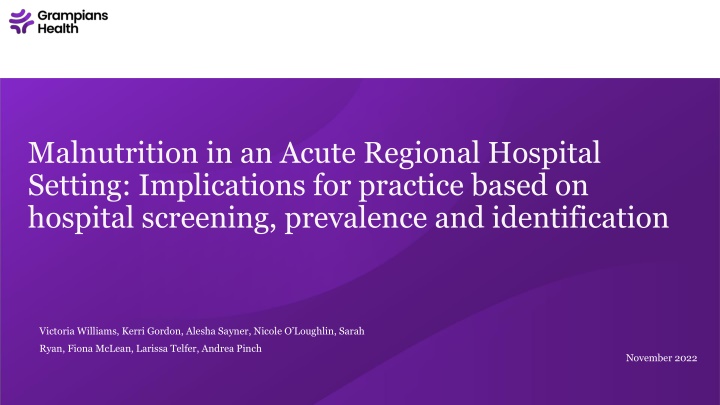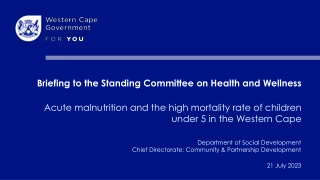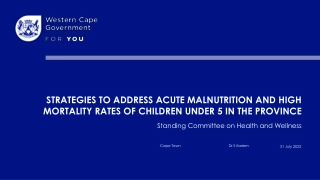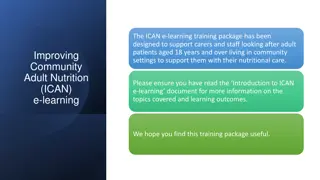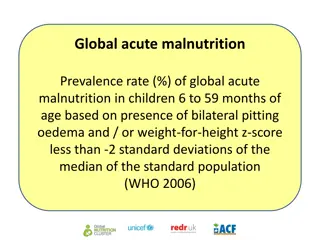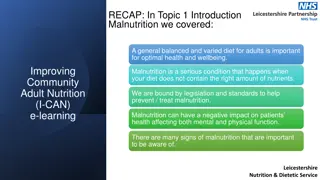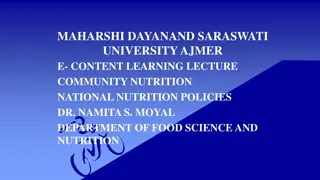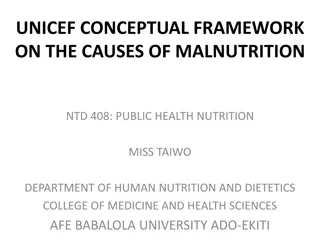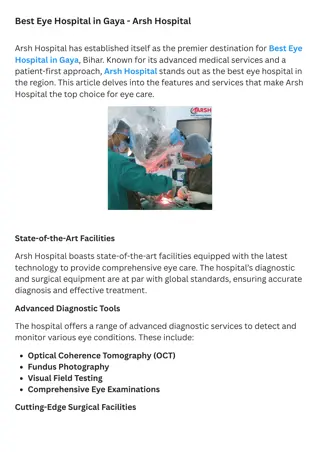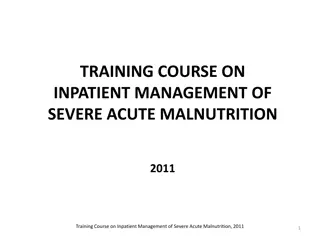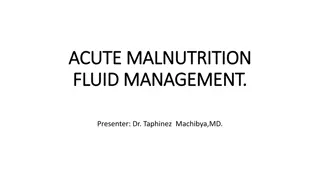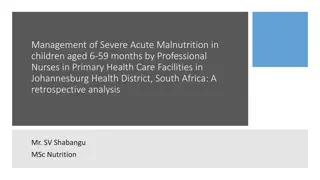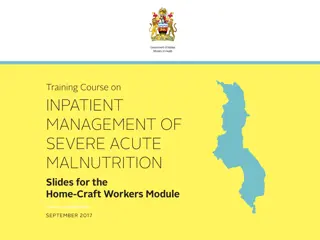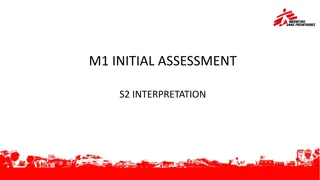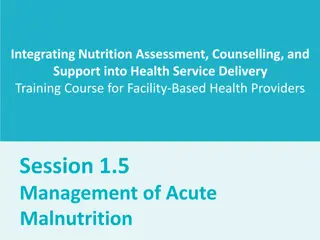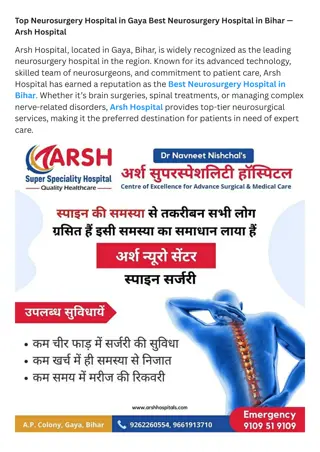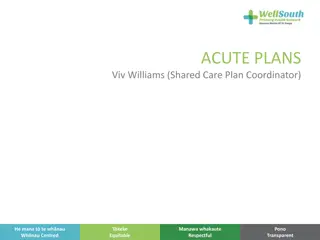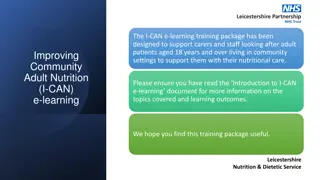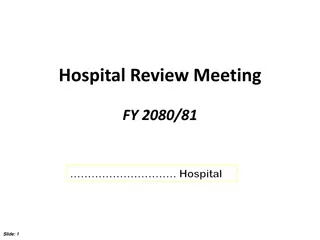Malnutrition in Acute Hospital Setting: Implications for Practice and Identification
A study on malnutrition in an acute regional hospital setting highlighted a prevalence of 40%, with implications such as impaired wound healing and increased length of stay. Screening tools like the Malnutrition Screening Tool (MST) and Subjective Global Assessment (SGA) were used to assess patients. The study aimed to determine prevalence, assess weight documentation, and evaluate completion rates of screening tools. Findings showed varying degrees of malnutrition and identified areas for improvement in screening and documentation practices. Recommendations included enhancing the role of dietitians, providing education, establishing clear clinical pathways, and emphasizing ongoing research.
Download Presentation

Please find below an Image/Link to download the presentation.
The content on the website is provided AS IS for your information and personal use only. It may not be sold, licensed, or shared on other websites without obtaining consent from the author.If you encounter any issues during the download, it is possible that the publisher has removed the file from their server.
You are allowed to download the files provided on this website for personal or commercial use, subject to the condition that they are used lawfully. All files are the property of their respective owners.
The content on the website is provided AS IS for your information and personal use only. It may not be sold, licensed, or shared on other websites without obtaining consent from the author.
E N D
Presentation Transcript
Malnutrition in an Acute Regional Hospital Setting: Implications for practice based on hospital screening, prevalence and identification Victoria Williams, Kerri Gordon, Alesha Sayner, Nicole O Loughlin, Sarah Ryan, Fiona McLean, Larissa Telfer, Andrea Pinch November 2022
Background: 40% acute hospital malnutrition1 Sarcopenia Impaired wound healing Increased length of admission Validated screening & assessment tools Malnutrition Screening Tool (MST) Subjective Global Assessment (SGA)
Aims: 2 3 1 Determine the prevalence of malnutrition in acute hospitalised patients To measure the prevalence of hospital vs. community- acquired malnutrition Assess completion of weight documentation and MSTs
Methods Analysis of data Point of Prevalence Review Review of medical Histories Future direction Liaising with key stakeholders Prospective audit Patient outcomes Descriptive Statistics
Results: Completion on admission 58% weights 55% MST SGA A 12% 83 Patients 44.5% scored MST 2 SGA: 38% Malnutrition B = 76% mild/moderate C = 24% severe SGA not indicated 49.3% SGA B 29.3% SGA C 9.3%
Results: 29 Patients with malnutrition: CAM CAM Comm. acquired: 65.5% HAM HAM Hosp. acquired: 24.2% Undefined Undefined Undefined: 10.3% 0 0 25 25 50 50 75 75
Discussion: Admission goal: 100% of patients screened Referral completion3 Accuracy of MST completion2 Penalties of HAM4 2014 2018 2022 MST Completion 68% 50% 55% SGA B 74% - 76% SGA C 26% - 24% Weight documented on Admission - 63% 58%
Clinical Implications: Dietitians role in ID and addressing barriers Providing education Policy and procedures Clear clinical pathways Ongoing research
Conclusions: 2 1 3 Nutrition and hydration risk screening upon patient admission SGA's on all 'at risk' patients with documentation of Hospital vs. Community Regular auditing to monitor outcomes following intervention implementation
1. Agarwal E, Ferguson M, Banks M, Batterham M, Bauer J, Capra S, Isenring E. (2013) Malnutrition and poor food intake are associated with prolonged hospital stay, frequent readmissions, and great in- hospital mortality: Results from the Nutrition Day Survey 2010. Clinical Nutrition: 32: 737-745 2. White J, Guenter P, Jensen GJJOP, NUTRITION E. Consensus statement: Academy of Nutrition and Dietetics and American Society for Parenteral and Enteral Nutrition: characteristics recommended for the identification and documentation of adult malnutrition (undernutrition)(vol 36, pg 275, 2012). 2017;41(3):520. 3. Gout, B.S, Barker, L.A, Crowe, T.C (2009). Malnutrition identification, diagnosis and dietetic referrals: Are we doing a good enough job?. Nutrition & Dietetics: 66: 206-211 4. Makhija S, Baker J. The Subjective Global Assessment: a review of its use in clinical practice. Nutr Clin Pract 2008; 23: 405 9 References:
Thank you Victoria Williams E: victoria.williams@bhs.org.au
